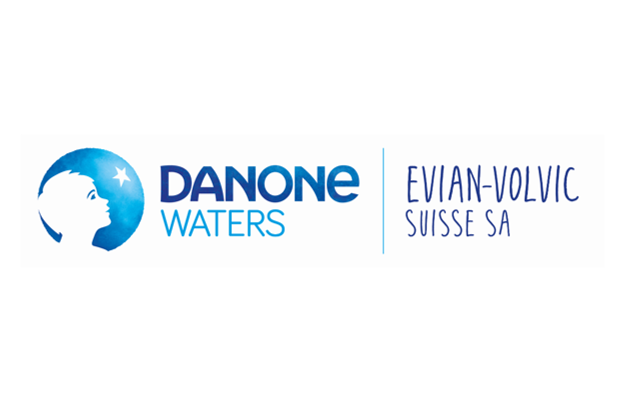



Evian Volvic Suisse

Zürich, Switzerland
May 2020
Beverages
Wholesale/Retail
Switzerland
Evian-Volvic Suisse (EVS), a subsidiary of Danone, is committed to healthy hydration through innovative, healthier and natural products, embracing society and stakeholder needs and reducing teir impact on the environment. EVS strives to fulfill Danone’s dual commitment to business success and social progress. Danone´s signature ‘One Planet. One Health’ is at the heart of this, recognising the interconnection of the health of people and the planet. Water is an essential part of the human body and staying hydrated makes a positive difference to your health. One of the defining characteristics of natural mineral waters like evian, Volvic or Badoit is their complete naturalness and purity. EVS constantly works with local communities and stakeholders to protect and restore the natural water ecosystem of their sources today and for future generations. They support initiatives that improve access to safe drinking water. Furthermore, packaging innovation is key: today, all evian, Volvic and Badoit bottles in Switzerland are 100% recyclable. In 2020, EVS moves the evian and Volvic portfolio to bottles from 100% recycled PET (rPET) to adopt a circular approach to plastic. Since 2019, evian is a carbon-neutral brand in Switzerland independently certified by Carbon Trust.
Overall B Impact Score
Governance 14.4
Governance evaluates a company's overall mission, engagement around its social/environmental impact, ethics, and transparency. This section also evaluates the ability of a company to protect their mission and formally consider stakeholders in decision making through their corporate structure (e.g. benefit corporation) or corporate governing documents.
What is this? A company with an Impact Business Model is intentionally designed to create a specific positive outcome for one of its stakeholders - such as workers, community, environment, or customers.
Governance 14.4
Governance evaluates a company's overall mission, engagement around its social/environmental impact, ethics, and transparency. This section also evaluates the ability of a company to protect their mission and formally consider stakeholders in decision making through their corporate structure (e.g. benefit corporation) or corporate governing documents.
What is this? A company with an Impact Business Model is intentionally designed to create a specific positive outcome for one of its stakeholders - such as workers, community, environment, or customers.
Workers 24.9
Workers evaluates a company’s contributions to its employees’ financial security, health & safety, wellness, career development, and engagement & satisfaction. In addition, this section recognizes business models designed to benefit workers, such as companies that are at least 40% owned by non-executive employees and those that have workforce development programs to support individuals with barriers to employment.
Community 13.9
Community evaluates a company’s engagement with and impact on the communities in which it operates, hires from, and sources from. Topics include diversity, equity & inclusion, economic impact, civic engagement, charitable giving, and supply chain management. In addition, this section recognizes business models that are designed to address specific community-oriented problems, such as poverty alleviation through fair trade sourcing or distribution via microenterprises, producer cooperative models, locally focused economic development, and formal charitable giving commitments.
Environment 24.2
Environment evaluates a company’s overall environmental management practices as well as its impact on the air, climate, water, land, and biodiversity. This includes the direct impact of a company’s operations and, when applicable its supply chain and distribution channels. This section also recognizes companies with environmentally innovative production processes and those that sell products or services that have a positive environmental impact. Some examples might include products and services that create renewable energy, reduce consumption or waste, conserve land or wildlife, provide less toxic alternatives to the market, or educate people about environmental problems.
Customers 3.6
Customers evaluates a company’s stewardship of its customers through the quality of its products and services, ethical marketing, data privacy and security, and feedback channels. In addition, this section recognizes products or services that are designed to address a particular social problem for or through its customers, such as health or educational products, arts & media products, serving underserved customers/clients, and services that improve the social impact of other businesses or organizations.